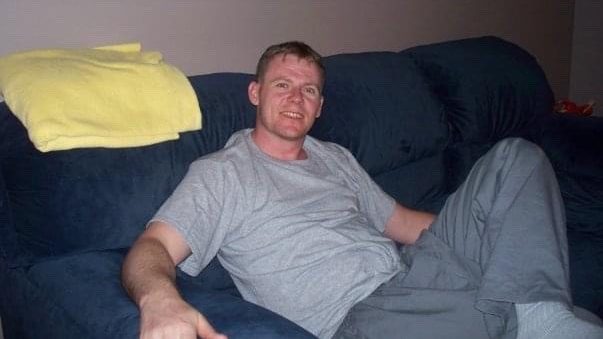Tory edges Ford in closer-than-expected battle for mayor
Posted October 27, 2014 8:31 pm.
This article is more than 5 years old.
John Tory’s vow to unite a divided council and usher in a new transit era with his ambitious SmartTrack plan was embraced by voters who elected him the 65th mayor of Toronto in a tight battle on Monday night.
Early voter turnout numbers show that more than 60 per cent of Torontonians cast a vote, up from 50 per cent in 2010 when Rob Ford was elected.
While Tory gave a nod to the Fords in a spirited victory speech, he also acknowledged the end of a tumultuous term at city hall.
“Torontonians want to see an end to the division that has paralyzed city hall the last few years. And I say ‘Toronto, I hear you loud and clear.’ ”
“What a great night this is for our city. Ladies and gentlemen the people have spoken and tonight we begin the work of building one Toronto. A prosperous, fair, respected and caring Toronto.”
“As your new mayor I will work with council moving Toronto not left, not right, but forward. I will be a balanced and accountable leader…We are going to build a strong, inclusive city of opportunity from Etobicoke to Scarborough and from North York right to the waterfront. To build one Toronto.”
Throughout the grueling seven-month campaign Tory’s support steadily grew, with a final Forum poll on the eve of the election showing him with a comfortable 12-point lead over second-place Doug Ford. But it was much closer than that on election night, with Ford nipping at Tory’s heels.
In the end Tory earned about 40 per cent of the vote, trailed by Ford and Chow with 34 and 23 per cent respectively.
“I will go to sleep tonight knowing that I gave it absolutely everything,” Doug Ford said surrounded by family and supporters. “I want to congratulate John Tory and his team on a job well done.”
“Win or lose I always said that we would run a campaign that made us proud and tonight we can hold our heads high.”
It’s not the end of the Ford reign at city hall, though — Rob Ford was elected as councillor in Ward 2, Etobicoke — the seat he held before he was elected mayor in 2010.
“I look forward to these next four years,” he said.
“My brother (Doug) put his heart and soul into something he had no experience doing,” he added before hinting that he would run again next term.
“Just watch in four more years folks…”
Olivia Chow, who was once considered the front-runner to become the city’s next chief magistrate, found herself frustratingly mired in third place in the late polls and couldn’t advance any further on the big day.
“Our city has a new mayor,” Chow conceded. “It’s not the result we have hoped for, but I want to congratulate John Tory on running an excellent campaign.”
“I’m going to go home and have some wings and beer and take a bit of a break,” she said when asked what was next. She also hinted that she was a victim of strategic voting by the ‘anyone-but-Ford’ faction of voters.
“I think this campaign was a lot about the Ford brothers,” she said. “People either wanted to vote for Ford or not.”
Neither Chow nor Ford were able to halt Tory’s late momentum despite valiant and at-times desperate efforts.
Chow questioned the financial feasibility of Tory’s $8-billion 53-kilometre transit overhaul, and said he didn’t have a realistic financial plan to pay for it.
Ford said Tory wasn’t upfront about the need to tunnel to complete portions of SmartTrack and painted his rival as a wealthy elite out of touch with the common people of the city.
He also taunted Tory, accusing him of flip-flopping on numerous issues.
Hoping to ride a popular catchphrase like his brother’s ‘Stop the gravy train,’ Doug Ford took to asking, “What’s the story, Mr. Tory?” any time he found himself in the presence of a microphone.
In the end, the ‘folks’ of Toronto answered the question for him, drowning out chants of “Ford More Years” by putting their faith in Tory, who narrowly lost to David Miller when he first ran for mayor in 2003.
Tory’s victory on Monday capped off a heated campaign that saw numerous key players drop out along the way. Both Karen Stintz and David Soknacki withdrew after failing to gain traction with voters, and Rob Ford bowed out after being diagnosed with a rare form of abdominal cancer.
His illness set the stage for Doug Ford’s last minute push to keep the top spot at city hall in the family, signing his papers just 15 minutes before the nomination deadline.
Ford promised to cut the land-transfer tax by 15 per cent a year if elected, and create 32 kilometres of new subway at a cost of $9-billion, with a priority on a downtown relief line.
He also brought a pugnacious side to the campaign, engaging in shouting matches and taking pot shots at his opponents in heated debates.
But he couldn’t convince the majority of the electorate to give another Ford a chance at the job after the last four years marked by scandal and distraction at city hall.
Tory was quick to remind the public of the turmoil of the last term, suggesting it would be more of the same under Doug Ford’s leadership.
While deriding his main rival, Tory continued to focus on the campaign’s key issues – transit and congestion.
As part of his gridlock reduction plan, he proposed 24-hour construction to speed-up road works and other construction projects. He also proposed a zero-tolerance policy for delivery trucks parked illegally during rush hour.
View votes received for each mayoral candidate in below interactive charts. For mobile viewers, click here and here.














